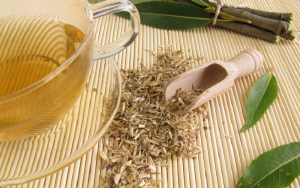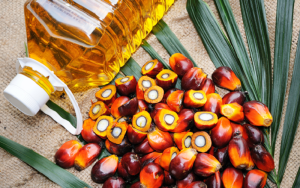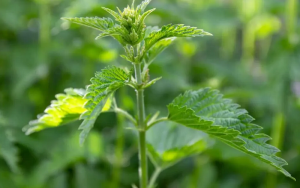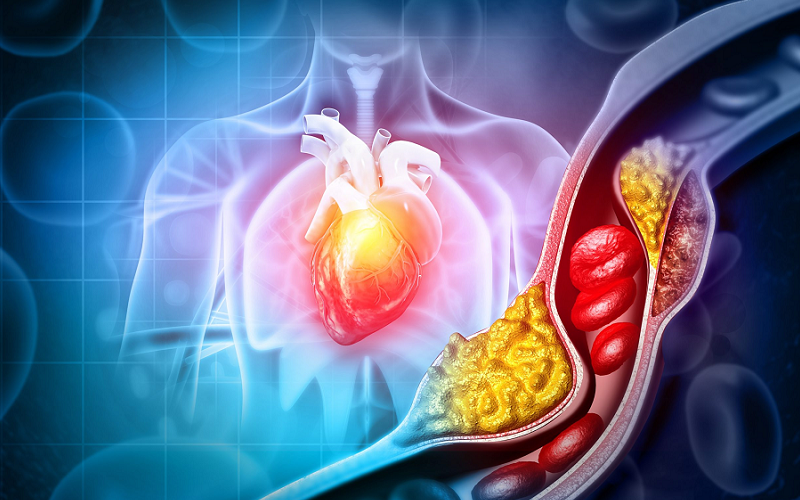
Cholesterol imbalances, particularly high cholesterol, pose a significant health risk to millions worldwide. While there are conventional treatments available, they often come with a host of side effects, leaving many to seek out natural, effective alternatives. In the midst of this health predicament, nature presents a powerful solution – Guggul Extract. Guggul, an age-old medicinal gum resin, has been used in Ayurvedic medicine for centuries, but its potential is just now being unveiled in the mainstream health sphere.
Contents
Introduction to Cholesterol Imbalances
Cholesterol, a type of fat found in your blood, plays a vital role in building healthy cells, synthesizing vitamin D, and creating important hormones. But as is the case with many aspects of health, balance is key.
Brief Overview of Cholesterol
The term “cholesterol” is often associated with a health risk, but the truth is, our bodies need a certain amount of it to function properly. Cholesterol helps create the structure of cell membranes, aids in the production of hormones like estrogen and testosterone, and assists in the production of bile acids that help digest food. However, problems can arise when there is an excess of cholesterol in your blood.
Understanding Cholesterol Imbalances: Hypercholesterolemia
Cholesterol imbalances, primarily known as hypercholesterolemia, occur when there is too much cholesterol in your blood. This can be the result of a variety of factors, including poor diet, lack of physical activity, and genetics. If left unchecked, this excess cholesterol can form plaque along your arterial walls, causing them to narrow and stiffen in a condition known as atherosclerosis. This leads to potential complications such as coronary artery disease, heart attack, or stroke [1].
Negative Health Impacts of Cholesterol Imbalances
A cholesterol imbalance, especially when it results in atherosclerosis, places a significant strain on your cardiovascular system. This can result in chest pain, or angina, as your heart muscle doesn’t receive enough oxygen-rich blood. Even worse, if a piece of the plaque in your arteries breaks off or ruptures, it can lead to the formation of a blood clot, blocking the flow of blood and potentially causing a heart attack or stroke. Clearly, managing cholesterol levels is a critical aspect of overall health and well-being [2].
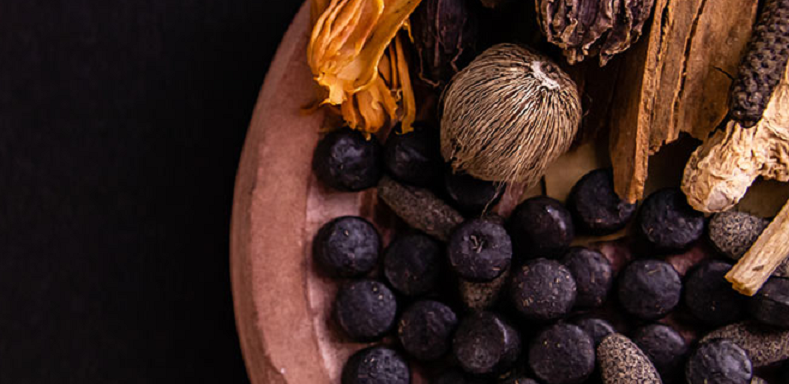
Conventional Treatment Methods for Cholesterol Imbalances
Now that we have explored the basics of cholesterol and the risks associated with its imbalance, it’s important to consider how these imbalances are typically addressed in conventional medicine.
Cholesterol Medication Overview
Conventional treatment for high cholesterol often involves medication, including statins, bile-acid-binding resins, cholesterol absorption inhibitors, and injectable medications. Statins are the most commonly prescribed, as they help reduce the amount of cholesterol your liver makes while also helping your body reabsorb the excess cholesterol in your artery plaque.
Side Effects and Limitations of Conventional Treatments
While these medications can be effective, they come with a potential for side effects. Some people may experience muscle pain and damage, liver damage, increased blood sugar levels, or neurological side effects like memory loss or confusion when taking statins. Bile-acid-binding resins can cause gastrointestinal issues, while cholesterol absorption inhibitors might result in stomach pain, fatigue, and muscle soreness. Also, these medications often need to be taken indefinitely, and stopping them can lead to an increase in cholesterol levels [3].
Importance of Natural Alternatives
Given the potential side effects and limitations of conventional treatments, many people are seeking natural, holistic alternatives for managing cholesterol imbalances. These alternatives include dietary modifications, increased physical activity, and the use of natural supplements like Guggul extract. Natural solutions tend to have fewer side effects and can often work in conjunction with a healthy lifestyle to provide long-lasting results.

Introduction to Guggul Extract
We’ve discussed the challenges of managing cholesterol imbalances and the potential limitations of conventional treatments. Now, let’s explore the world of natural alternatives, starting with a powerful plant-based supplement: Guggul extract.
History and Origin of Guggul
Guggul is a small, thorny plant native to arid regions of India, Bangladesh, and Pakistan. It has a rich history dating back over 2,500 years, with its first recorded use found in the ancient Ayurvedic text, “Sushruta Samhita.” The resin or gum of the Guggul tree, referred to as Guggul gum, is what’s typically used in medicinal preparations, including extracts.
Traditional Uses of Guggul in Medicine
In Ayurvedic medicine, Guggul has been historically used for a wide array of ailments. Its anti-inflammatory, antioxidant, and rejuvenating properties made it an excellent remedy for joint pain, skin diseases, and even obesity. It has been a key component of many Ayurvedic preparations for promoting detoxification and rejuvenation. Notably, it has also been used for managing blood cholesterol and lipid levels, a use that’s increasingly being recognized and researched in the modern scientific community.
Overview of Guggul Extract
Guggul extract is typically derived from the resinous sap of the Guggul tree. The process involves drying and powdering the sap, which is then usually standardized to contain a certain percentage of guggulsterones, the active compounds believed to be responsible for its therapeutic effects. Guggul extract is available in various forms, including capsules, tablets, and powders, providing a convenient way to leverage its potential health benefits.
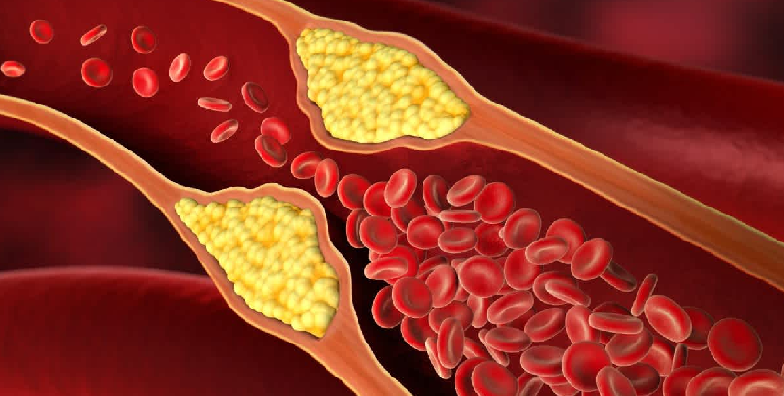
The Science Behind Guggul Extract and Cholesterol Management
After understanding the traditional use of Guggul extract in managing health issues, including cholesterol imbalances, it’s crucial to explore what contemporary scientific research has to say.
Review of Scientific Research and Studies
Several studies have shown that Guggul extract can effectively reduce cholesterol levels. One study published in the Indian Journal of Pharmacology found that participants who took Guggul extract saw a significant reduction in total cholesterol and LDL (low-density lipoprotein), also known as “bad” cholesterol. Another study in the Journal of Dietary Supplements concluded that Guggul extract could be a promising agent for managing hypercholesterolemia. These studies lend strong support to the centuries-old Ayurvedic practice of using Guggul for managing cholesterol levels [4].
Understanding the Mechanism: How Guggul Extract Works
Guggul extract is rich in guggulsterones, compounds that have been found to have a profound effect on cholesterol metabolism. Research suggests that these compounds increase the uptake of LDL from the blood by the liver, thereby helping to decrease the overall LDL level in the bloodstream. Furthermore, guggulsterones may also inhibit the formation of cholesterol in the liver. This dual-action makes Guggul extract a promising natural solution for managing cholesterol levels [5].
Potential Limitations and Areas for Future Research
While the existing scientific literature largely supports Guggul extract’s effectiveness, it’s crucial to mention potential limitations and the need for further research. Most studies conducted to date have been relatively small, and larger-scale trials would provide a more robust understanding of Guggul’s effects on cholesterol.
Additionally, more research is needed to clarify optimal dosage and to fully understand any potential side effects or interactions with other medications. Despite these limitations, the current body of research provides promising evidence of Guggul extract’s potential in managing cholesterol imbalances [6].
How to Incorporate Guggul Extract in Your Diet
You’ve now learned about the promising potential of Guggul extract for cholesterol management. Perhaps you’re wondering how you might go about integrating this powerful supplement into your routine.
Sourcing and Choosing High Quality Guggul Extract
As with any dietary supplement, quality matters when it comes to Guggul extract. Look for a reputable brand that ensures its extract is sourced responsibly, undergoes rigorous testing for purity and potency, and contains a standardized amount of the active compounds, guggulsterones. It’s also best to choose a product that’s free from unnecessary additives, fillers, or artificial ingredients.
Dosage Recommendations for Cholesterol Management
The appropriate dosage of Guggul extract can vary depending on factors like your age, overall health, and specific health concerns. However, most studies on Guggul and cholesterol management have used doses ranging from 25 to 50 milligrams of guggulsterones daily. It’s generally recommended to start with the lowest effective dose and adjust as needed based on your response and the advice of your healthcare provider.
Precautions and Contraindications
While Guggul extract is generally well-tolerated, it’s essential to consult with a healthcare professional before starting any new supplement regimen, especially if you have existing health conditions or are taking other medications. Some people may experience gastrointestinal side effects such as upset stomach or diarrhea when taking Guggul extract.
It is not recommended for pregnant or breastfeeding women, people with liver disease, or those taking certain medications such as blood thinners or thyroid medication.
References
[1] Use of Guggulipid to Treat Hypercholesterol
[2] Therapeutic Effects of Guggul and Its Constituent Guggulsterone: Cardiovascular Benefits
[3] Guggul for Hypercholesterolemia
[4] Using Guggulipid to Lower High Cholesterol Levels
[5] Guggulipid for the Treatment of Hypercholesterolemia
[6] A Comparative Study of Lipid-Lowering Effects of Guggul and Atorvastatin Monotherapy

